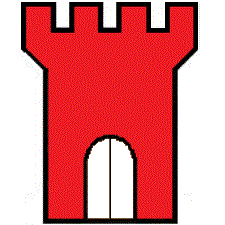Henry I of England makes concessions to Barons after claiming the English crown in order to garner support for this claim.
There were 14 declarations that recognized King Henry I granting the laws of Edward the Confessor, as amended by William the Conqueror, to the people.
Capitulation by King John to accept that his will was not arbitrary and that no "freeman" could be punished except through the rule of law.
In the years following, the charter was denounced, revised, reconfirmed, and portions repealed.
Three clauses are still in force dealing with the freedom of the English Church, the "ancient liberties" of the City of Londan, and a right to due process.
The armed conflict that started this day was preceeded by oppression by the British Crown against it's subjects living in the American Colonies.
The attempts by the Crown at exerting control over the colonies lead to the escalation of the conflict.
On April 19, 1775 the conflict involved firearms resulting in deaths on both sides.
The ideals of personal liberty lead British citizens living in the colonies to commit acts of treason (from the British Crowns point of view) against representatives of the British Crown.
"The Shot heard 'round the world" is not attributed to one person or even to one side of the conflict.
The British Regulars aligned in formation fronting the armed Colonist.
The British Commander on the scene commanding the Colonist to disperse in disparaging terms.
Stress on both sides is high.
Possibly someone not practicing safety has their finger on the trigger of their musket or pistol.
Then BANG a negligent discharge sparks a revolution.
It's one possibility on that fateful spring morning. - Greg Poole
The separation document declaring that these united States of America are Absolved from all Allegiance to the British Crown.
The Congress expresses that all men are created equal, that they are endowed with certain unalienable Rights,
That among these are Life,
Liberty and the pursuit of Happiness. http://www.archives.gov/exhibits/charters/declaration.html
http://www.archives.gov/exhibits/charters/constitution.html
Fearing tyranny by the central government, the First Congress of the United States proposed 12 amendments to the Constitution.
They documented the immunities of individual citizens.
Ten of the twelve were ratified by the states and are collectively known as the Bill of Rights.
http://www.archives.gov/exhibits/charters/bill_of_rights.html





